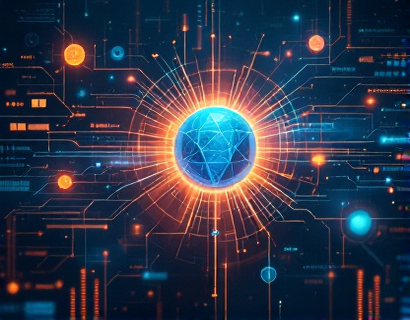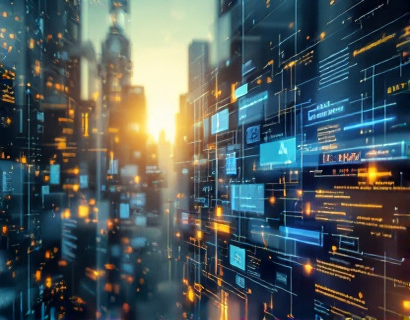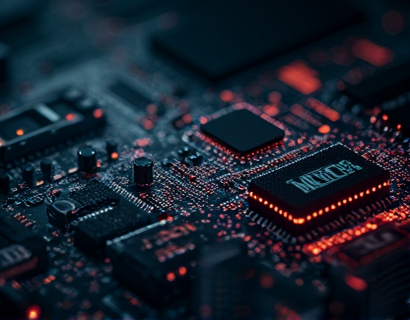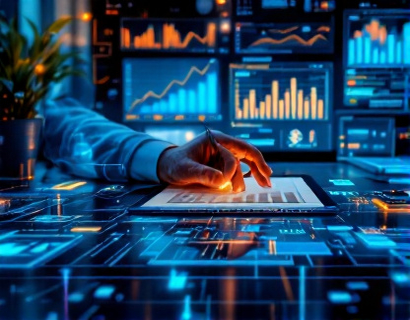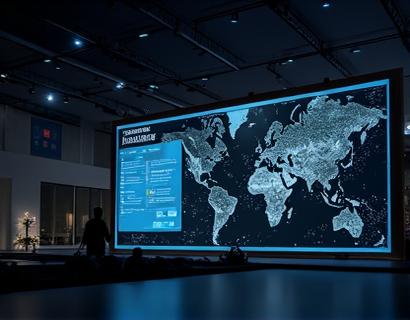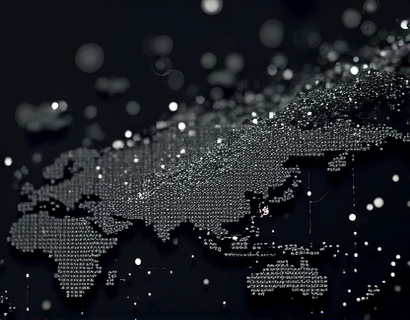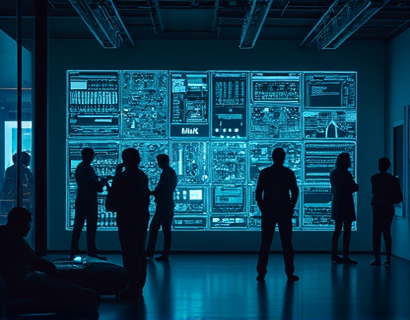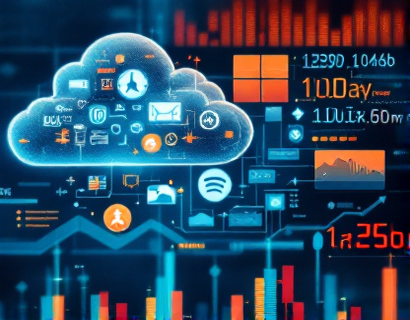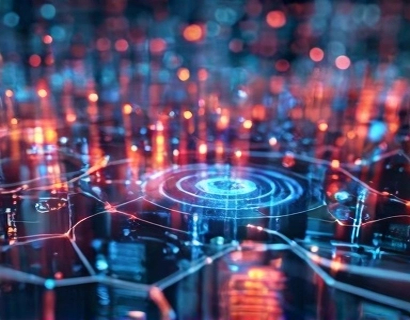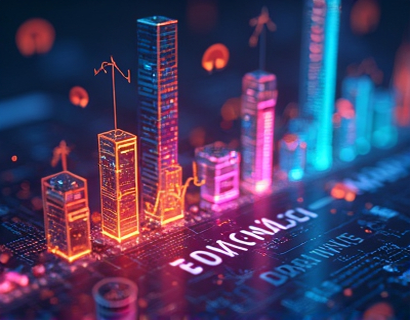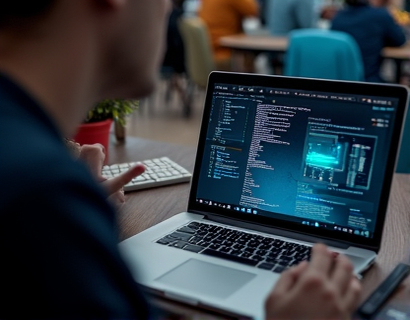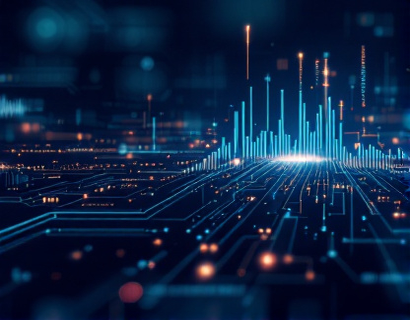Unlocking Productivity: How Crypto and AI Are Transforming the Digital Experience
The digital age has ushered in a era of unprecedented technological advancements, where the convergence of cryptocurrency and artificial intelligence (AI) is redefining productivity and user experience. This transformation is not just a series of incremental improvements but a fundamental shift in how we interact with technology, access information, and manage our daily tasks. This article explores the synergy between crypto and AI, highlighting how these technologies are merging to create powerful tools that streamline tasks and open new avenues for innovation. Whether you are a tech enthusiast, a productivity expert, or simply someone interested in the future of decentralized applications, this discussion will provide valuable insights into the evolving digital landscape.
The Intersection of Cryptocurrency and AI
Cryptocurrency and AI, though distinct in their origins and applications, are increasingly intertwined. Cryptocurrencies, with their decentralized and secure nature, provide a robust foundation for AI applications that require high levels of data integrity and transaction security. Conversely, AI enhances the functionality and efficiency of blockchain technologies, optimizing processes and unlocking new possibilities. This symbiotic relationship is giving rise to a new generation of digital tools that are more intelligent, secure, and user-friendly.
Enhanced Security through Cryptographic Techniques
One of the primary ways crypto contributes to AI applications is through advanced cryptographic techniques. Blockchain technology, the backbone of cryptocurrencies, uses cryptography to ensure data integrity and security. AI systems, particularly those handling sensitive information, benefit from these cryptographic methods. For instance, AI-driven health applications can securely store and process patient data using blockchain, ensuring that information is tamper-proof and privacy is maintained. This level of security is crucial for building trust in AI applications, especially in sectors like healthcare and finance where data sensitivity is paramount.
Smart Contracts and Automated Processes
Smart contracts, self-executing contracts with the terms directly written into code, are another area where crypto and AI converge. These contracts can automate complex processes, reducing the need for intermediaries and increasing efficiency. When combined with AI, smart contracts can be programmed to make decisions based on real-time data analysis. For example, in supply chain management, AI can predict demand and optimize inventory levels, while smart contracts automatically execute transactions when predefined conditions are met. This integration not only speeds up processes but also minimizes human error and fraud.
AI-Driven Optimization of Blockchain Networks
AI is also playing a pivotal role in optimizing blockchain networks, addressing some of the inherent challenges such as scalability and energy consumption. Machine learning algorithms can analyze network data to identify bottlenecks and suggest improvements. For instance, AI can optimize consensus mechanisms, reducing the computational power required for validating transactions. This not only makes blockchain more efficient but also more environmentally sustainable. Additionally, AI can enhance the user experience by personalizing interfaces and recommendations, making blockchain-based applications more intuitive and accessible.
Personalized User Experiences
The combination of AI and crypto enables the creation of highly personalized user experiences. AI algorithms can analyze user behavior and preferences to tailor applications and services to individual needs. In the context of decentralized finance (DeFi), AI can help users find the best investment opportunities based on their risk tolerance and financial goals. Cryptocurrencies, with their transparency and traceability, ensure that these recommendations are based on secure and verifiable data. This personalized approach not only enhances user satisfaction but also increases the adoption of decentralized applications.
Decentralized Applications and AI Integration
Decentralized applications (dApps) are at the forefront of the crypto and AI revolution, offering users greater control and autonomy. These applications run on blockchain networks, eliminating the need for central authorities and intermediaries. AI integration further enhances dApps by providing intelligent features such as predictive analytics, natural language processing, and automated decision-making. For example, a decentralized social media platform can use AI to moderate content, detect and prevent spam, and curate personalized feeds for users. This synergy ensures that dApps are not only secure and transparent but also highly functional and user-friendly.
Innovative Use Cases in Various Industries
The potential of crypto and AI is not limited to a single industry but extends across various sectors, each benefiting in unique ways. In the healthcare industry, AI-driven diagnostic tools can analyze medical data stored on blockchain for accurate and secure patient care. In the real estate market, smart contracts can streamline property transactions, reducing fraud and increasing transparency. In the supply chain, AI can optimize logistics and inventory management, while blockchain ensures traceability and authenticity of products. These innovative use cases demonstrate the versatility and impact of combining crypto and AI.
Challenges and Considerations
While the integration of crypto and AI offers numerous benefits, it also presents challenges that need to be addressed. One of the primary concerns is regulatory compliance. As both crypto and AI operate in relatively uncharted territories, navigating the legal landscape can be complex. Ensuring that applications comply with local and international regulations is crucial for widespread adoption. Additionally, there are technical challenges such as interoperability between different blockchain platforms and AI systems. Standardization and collaboration among developers and regulators are essential to overcome these hurdles.
Ethical Considerations
Ethics play a significant role in the development and deployment of crypto and AI technologies. Issues such as data privacy, algorithmic bias, and the potential for misuse must be carefully considered. AI systems trained on biased data can perpetuate and even exacerbate existing inequalities. Similarly, the use of blockchain in sensitive applications requires robust measures to protect user privacy and prevent unauthorized access. Ethical guidelines and best practices should be established to ensure that these technologies are used responsibly and for the greater good.
The Future of Decentralized Solutions and AI-Driven Tools
Looking ahead, the convergence of crypto and AI is poised to revolutionize the digital experience in profound ways. As technology continues to advance, we can expect more sophisticated and seamless integrations that further enhance productivity and user experience. The rise of edge computing, for instance, will enable AI to process data closer to the source, reducing latency and improving real-time decision-making. This, combined with the security and transparency of blockchain, will create a more efficient and trustworthy digital ecosystem.
Moreover, the development of decentralized AI platforms will allow for more democratic and inclusive innovation. These platforms can democratize access to AI tools and resources, enabling a broader range of developers and businesses to create and deploy intelligent applications. This shift will foster a more diverse and vibrant tech community, driving innovation and growth across various industries.
In conclusion, the integration of cryptocurrency and artificial intelligence is transforming the digital experience, offering unprecedented levels of security, efficiency, and personalization. As these technologies continue to evolve and converge, they will unlock new possibilities for productivity and innovation. For tech enthusiasts, productivity experts, and anyone interested in the future of decentralized applications, understanding and embracing this synergy is essential for staying ahead in the digital landscape.





